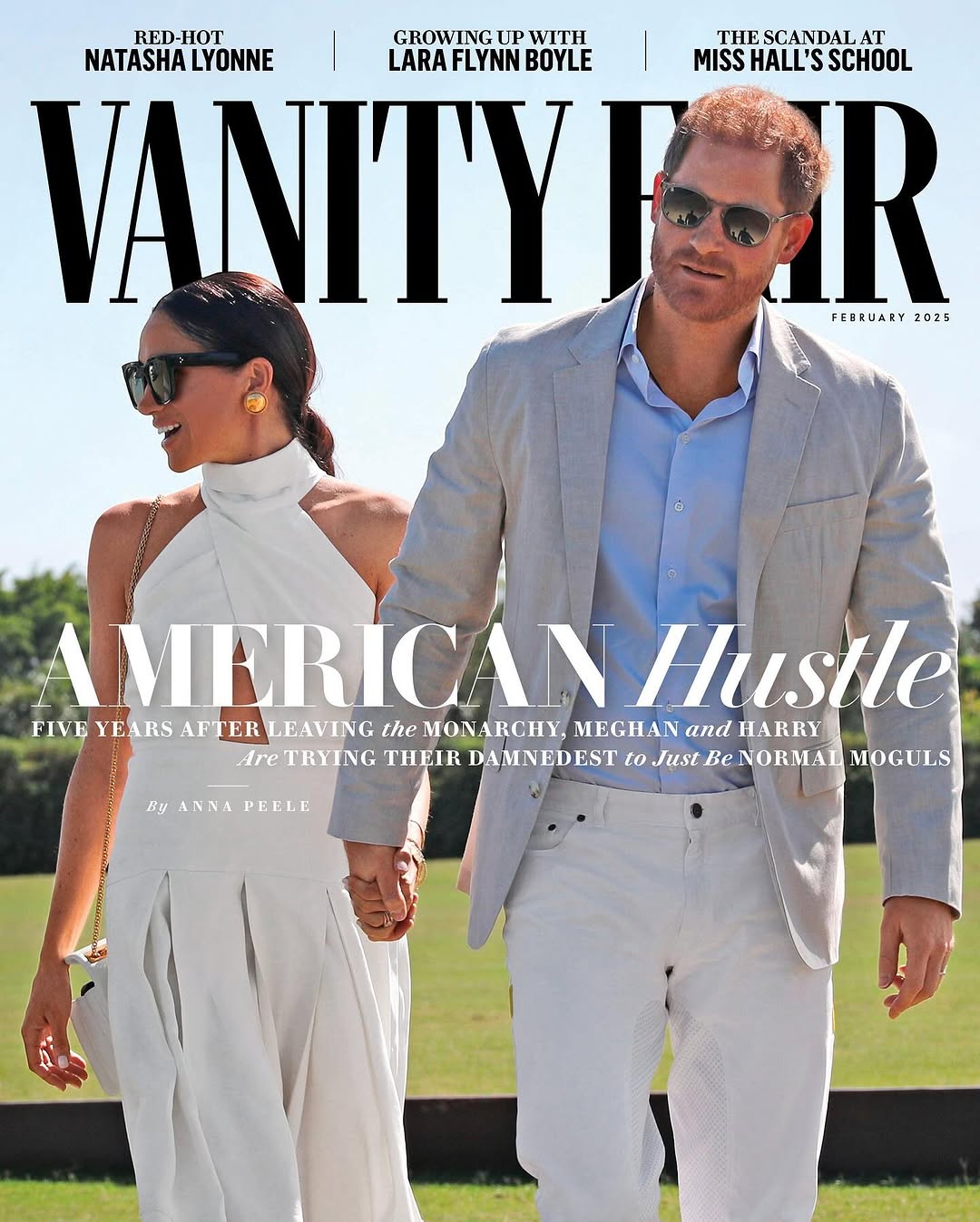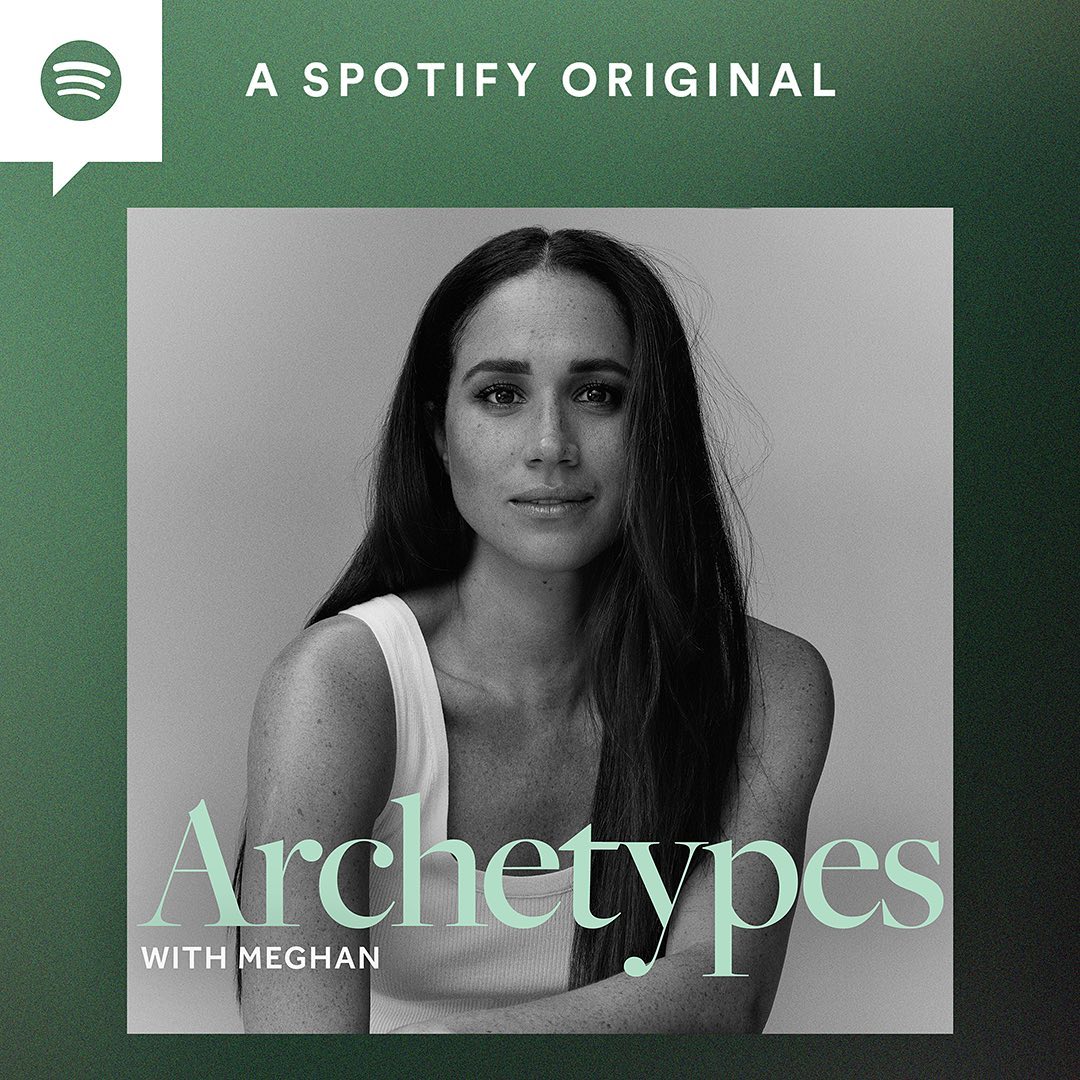One thing is for sure: a lot of people in the media and in Britain were paying close attention to the Duke and Duchess of Sussex’s 2025 schedule. Prince William and Kate threw together appearances to coincide with/thunder-steal from Meghan’s Netflix show, which was originally scheduled to drop on January 15. Those people were also hyper-aware of Harry’s massive trial against Rupert Murdoch’s News Group Newspapers. And don’t forget the Invictus Games next month, because I believe some of these stories were anticipatory for all of the amazing press Harry and Meghan get for every Invictus event. All in all, it feels like there’s another high-level effort to smear Harry and Meghan. This Vanity Fair cover story is going to be referenced and discussed for a while too, which sucks. So, Vanity Fair published this cover story called “Inside Prince Harry and Meghan Markle’s Big Business Ambitions, 5 Years After Their Royal Exit.” It was written by Anna Peele, and Peele notes that Harry & Meghan “declined to be interviewed for this article.” You can read the full piece here. I’m going to have to cover this over multiple posts, sadly.
Having read the VF piece a couple of times now, I feel safe in saying that it’s overwhelmingly unfair to Harry and Meghan. Whatever “case” Vanity Fair is trying to make – that Meghan sucks and Harry is okayish – is hurt by Peele quoting unnamed sources with really obvious axes to grind, so much so the sources sound like palace courtiers hiding behind gopher wigs and sunglasses. Full disclosure though: there are some sections which I found notable, interesting or believable. Most of those parts are about how Harry probably would prefer if Meghan goes out and makes the money (I believe that completely) so he can just do his advocacy and charity work. I also believe some of the stuff about how toxic it got between Spotify and the Sussexes, and I think we just have to eat some of that, as fans of Harry & Meghan. Spotify had legitimate beef with the Sussexes and Spotify had every right to be disappointed with how little they did with their contract. Now, it was a choice to put so much of the Spotify stuff in the VF article, because it’s been abundantly clear for years that there’s no love lost. I would also assume that associates from other companies didn’t want to speak to VF, or they didn’t have any axe to grind and so their comments were left out. Anyway, here are the Spotify sections:
The naivete: “They have this naivete and their hopefulness about what’s possible in terms of storytelling and good works and all those things,” says producer Jane Marie, who collaborated with the couple while they developed audio projects at Archewell and later produced a podcast with Michelle Obama. “I wish I had that kind of optimism.”
Development problems at Spotify. The former Spotify employee says, “They had this idea to do a podcast because they knew celebrities did them,” a category differentiated between celebrities who get a lot of money to begin podcasting, like Harry and Meghan, and celebrities who get large deals after proving themselves to be capable podcasters, like Smartless’s Will Arnett, Sean Hayes, and Jason Bateman. The former Spotify employee says Harry and Meghan “didn’t do what celebrities do on podcasts, which is turn on the mic and talk. They wanted a big theme that would explain the world, but they had no ideas.” Someone who worked closely with them on audio projects disputes this version, lamenting that because of Meghan and Harry’s insistence on silence from employees and their own reticence, the public doesn’t know about good projects that had to be abandoned for practical reasons. “It feels like the only story is ‘They didn’t satisfy their contract,’” she says. “It’s not like work wasn’t being done.”
Harry’s meeting with Spotify: As time passed—it would be nearly two years between the couple’s deal signing and the premiere of Archetypes—Spotify began applying pressure to produce something (anything!) that people might listen to. The former Spotify employee says Harry came to the Los Angeles office once and asked for a cup of cocoa. There was none in the office, so employees scrambled to obtain some. An idea was pitched to Harry—what if he reviewed a hot chocolate every week while chatting with a different friend?—which he and his team considered and rejected. Another concept was that Harry would “fix” something every week, ranging from a flat tire to global warming. “He wanted to do a podcast about disabled people who compete in the Invictus Games,” the former Spotify employee says. “But there’s no crossover between the audience who would listen to that and people who want to hear about Harry’s life.”
Harry was charming but disinterested: The former Spotify employee says it was challenging to engage Harry, and a person who interviewed for a job with the couple says, “I just felt like he kind of didn’t want to be there doing that at this time…. My expectation was ‘charming receiving line.’ And it was clear he wasn’t that person. At least that day.” And at least in the context of a hiring manager: A person who worked on an event during Harry’s book tour says he has the “greatest manners I’ve ever seen. Hands down. Like I can’t believe his knees are as supple as they are. He was getting up and down anytime somebody walked into a room…. He was unfailingly kind and friendly to everyone.”
Harry wishes Meghan would make the money: During the interview, the potential employee says, Harry’s attitude was either “Well, why should I do this?” or “Why are we doing this?” The interviewee says they wondered, “Didn’t Spotify pay you a lot of money to do this?” The person inside the couple’s circle says, “He looks like the kind of guy who would, frankly, happily work for charities for the rest of his life and would be very happy if Meghan made all the money and he didn’t need to.”
The Sussexes’ self-censorship: Harry and Meghan became increasingly nervous about how their content would impact them. Marie says, “I can say that they had really great ideas for shows, interesting pitches, interesting guests. But them as the deliverers or either of them as the hosts of these more kind of edgy ideas would have been like…they would have had to move again. I think it’s a combination of self-censorship for good reason and the corporate powers that be that run podcasting that don’t know what that is [to create valuable shows]. In combination, those things make it really hard to make good stuff.” The person who worked in media projects imitates the thought process behind any decision about the couple’s projects: “Well, he has a million things that he has to protect, and he has the book, and they have the documentary, and they don’t want to make the queen upset, and their public image.…”
The problem with Archetypes: The former Spotify source says, “Archetypes was complicated as a podcast concept. You had to explain what the archetype was, then why the woman embodied it, but also how it wasn’t true about her. Every episode was like, ‘This is my friend who has been called that archetype but is not that archetype.’” These archetypes—actually stereotypes—included diva (Mariah Carey) and bimbo (Paris Hilton and Iliza Shlesinger). As for those “friends,” there was an expectation that Meghan would be able to use her personal Rolodex to book the show, the way hosts like Simmons and the Pod Save America guys do. The person who worked in media projects says the assumption was, “Meghan’s gonna be on the phone with the pope tomorrow.”
Watering down the concepts: According to the source in media projects, Meghan would agree to provocative ideas and then walk them back. In one episode, she wanted to actually say the word bitch because, as the source remembers Meghan saying, “You hear it all the time.” It ended up with Meghan calling it “the B-word.” An episode titled “Slut,” intended to center on how trans women’s sexuality is used against them, was retitled “Human, Being” by Meghan and had to be completely reimagined late in production. “Every episode got more and more watered down and further away from actual conversation,” the source says. “It felt like very Women’s and Gender Studies 101 taught in 2003.”
As I said, I think some of these criticisms are fair and some of these stories are true. I believe Harry pitched interesting podcast ideas only to be turned down by Spotify executives who wanted him to give them gossip and scandal rather than “let’t talk to this Invictus competitor.” I could see how Harry would disengage if he was being repeatedly told that no one would listen to a podcast about veterans and mental health (arguably his life’s work). I believe Meghan was self-censoring and she watered down her message in Archetypes. I believe Archetypes was too complicated a pod-concept right out of the gate, and Meghan should have started with a much more simplified concept, like “I’m going to interview this interesting woman about this week’s broad theme.” And yes, I really believe that Harry would love it if Meghan would just go out and make the money so he could concentrate on charity work & Invictus.
Photos courtesy of Spotify, Invictus, AppleTV. Cover courtesy of Vanity Fair.







